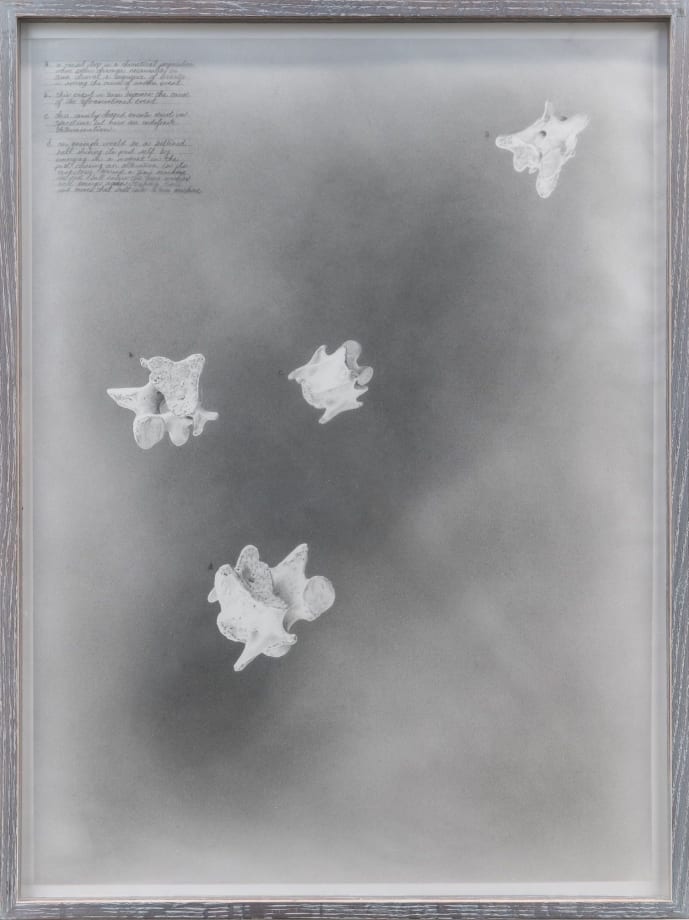Riveted by the illusion of time, Young evokes the theoretical proposition of a causal loop – the concept of objects and information as self-existing, through a cyclical relationship between cause-and-effect that functions to preserve a fixed outcome. While the works are visually rooted in narratives of family history, there is a subtle reference to time as existing beyond perceived limits.
“The past, present, and future exist within the work, challenging and transcending linear boundaries by examining the complicated relationship between the bones and their origins, suggesting their continued existence across multiple planes of time. There is a metaphysical proof of informational loops that suggests the potential to unlock and actualize the past and the future, through the assured knowledge of the bone’s existence within the here and now.” - Nate Young
More simply put, Young considers the idea of an object bringing about its own existence, a concept popularized in mainstream media through films such as “Back to the Future” and “Interstellar”, as well as well as the recent Netflix series “Dark”.
The exhibition presents two unique bodies of sculptural works, each rooted in this fascination with quantum entanglement, where the present actualizes and discovers artifacts of the past. Inspired by rituals’ ability to frame, define, and empower, Young presents reliquaries that loosely mimics ornate altars and vitrines found in a house of worship, thereby elevating the horse bones to a sacred position of authority and cultural relevance. Excerpts of text appear within each altar, recounting the harrowing stories of his great-grandfather’s battle with depression. The bones built into each work themselves reveal secretly coded messages within.
What we arrive at is an expansion of the ongoing critical investigation of the myriad ways in which meaning is constructed, and how it's informed not only by empirical evidence, but also by ritual and philosophical belief.

